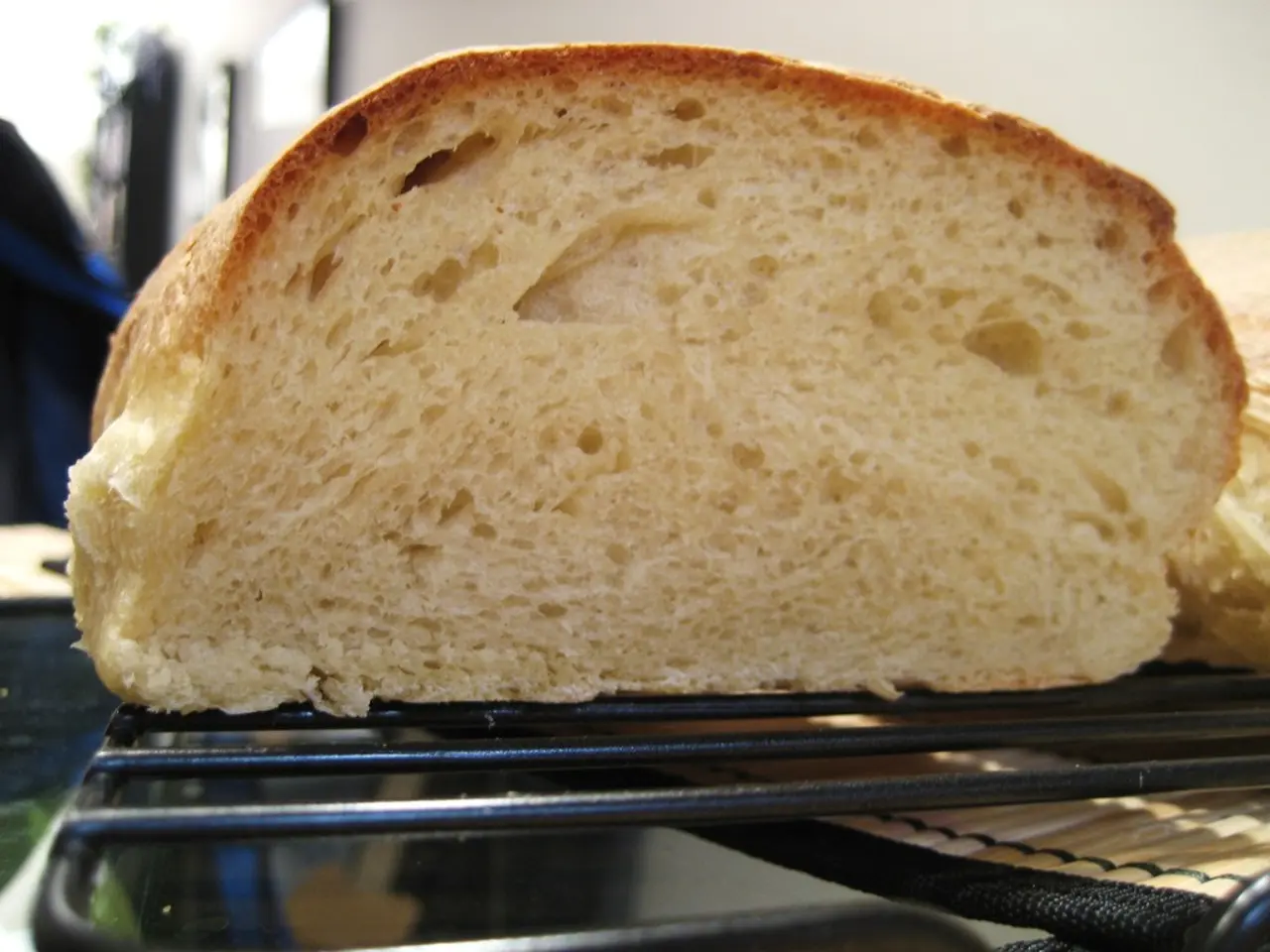Aldi Shoppers Scrutinize Pastries Closely, Causing Surprised Outbursts
In a recent online debate, the presence of alcohol in hot dog buns has sparked controversy, with Aldi bakery products, including hot dog buns, being found to contain alcohol. This discovery has upset some customers, particularly those who avoid alcohol for health, recovery, or religious reasons.
Everyday foods can often contain hidden alcohol, a fact that may be overlooked due to being naturally occurring or residual from preparation processes. Examples of such foods include fermented products, ripe fruits, baked goods, and certain condiments.
Fermented foods like white wine vinegar, soy sauce, and kombucha can contain alcohol. Natural juices, such as apple, orange, and grape, can also ferment and contain trace amounts of alcohol. Baked goods and ripe produce, like burger rolls and very ripe bananas, can also contain alcohol due to fermentation.
Cooking-related items, such as wine in stews or desserts, may not fully evaporate, leaving behind trace amounts of alcohol. Extracts and tinctures, like vanilla essence, herbal tinctures, and some medicines, often contain alcohol as solvents or preservatives.
According to a chemistry expert, alcohol is toxic from the first molecule. There is no 'healthy dose' of alcohol, only a lower or higher risk, such as cancer or liver damage. Children are particularly vulnerable to the harmful effects of alcohol as they lack the enzymes needed to break it down, which are developed later in the liver.
In light of this debate, it is crucial for consumers to be vigilant when checking food labels for the presence of alcohol. Terms like ethanol, ethyl alcohol, E334 (tartaric acid), E1519 (benzyl alcohol), phenylmethanol, or names of spirits (e.g., rum, brandy) should be looked out for.
While the exact nature of the action taken at Aldi stores is not specified, it is clear that this issue highlights the need for transparency in food labelling. As consumers, it is our responsibility to make informed choices about the foods we eat and the products we buy.
[1] Source: Detailed information on hidden alcohol in everyday foods. [2] Source: Unrelated article about health damage from certain foods. [3] Source: Unrelated article about energy drinks. [4] Source: FDA warnings about hidden drugs in supplements. [5] Source: Unrelated article about FDA warnings.
- Consumers should be aware that fermented foods and ripe produce, like kombucha, soy sauce, white wine vinegar, burger rolls, bananas, and certain condiments, can contain alcohol.
- In their pursuit of a healthier lifestyle, individuals may want to consider the presence of alcohol in foods such as baked goods, some natural juices, and cooking-related items like stews and desserts, due to the potential risks associated with alcohol consumption.
- When buying goods from stores like Aldi, it is essential to be vigilant and check food labels carefully for terms like ethanol, ethyl alcohol, E334 (tartaric acid), E1519 (benzyl alcohol), phenylmethanol, or names of spirits, as these may indicate the presence of alcohol.




